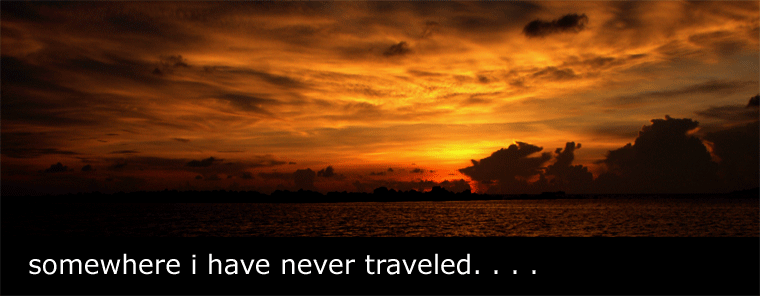The Wisdom of Job
Doing my year-in-review in Loyola this afternoon, I realized that notwithstanding the many losses and missteps of the past year, I can still say, in all honestly, that 2006 was a good year. Not that it was particularly memorable— if passing the 2005 Philippine Bar is not memorable enough; rather it was good because it was consistent and comfortable, with the occasional quiet moment of redemption and surprise.
In a very real sense, 2006 marked off for me the pattern which my near future is to inadvertently follow, that is, weeks of work, teaching, the occasional dinner or celebration, and lots of quiet and solitary moments of loneliness and joy. And the judgment, on top of all the seeming ennui or pathos (depending on which side of the bed I wake up on) is that this pattern isn’t really all that bad.
Indeed, 2006 taught me how to be more patient, particularly with myself, and where my life is going. In the times I find myself sitting in the office, slaving away at a pleading at ten o’clock in the evening, wondering whether it was really what I wanted to do with the rest of my life, I realized that this, too— this doubt, confusion, boredom, and elation— was all part of the journey. And what life is asking of me now is to experience this, fully, the best way I know how. All this, no doubt, will have a point.
Not that all has been smoke and mirrors. On the contrary, in certain quiet, blessed silences, there have also been moments of redemption and consolation, when, somehow, I was given a glimpse— or perhaps, more precisely, a feeling— of eternity: that giddy expectation that something more, something far better is waiting just beyond the horizon.
It is all just a matter of time. Or better yet: that the best is yet to come.
And so, tonight, of all nights, I respond in faith, that though things may not be too clear to me at the moment, at the turning of yet another year, “no doubt, the universe is unfolding as it should.” And like the good man Job who attempted, without success, to understand God’s inscrutable ways, I too have the courage to pray: The Lord giveth and the Lord taketh away; blessed be the Lord’s name.
May your 2007 be filled with the same hope and the same faith.
In a very real sense, 2006 marked off for me the pattern which my near future is to inadvertently follow, that is, weeks of work, teaching, the occasional dinner or celebration, and lots of quiet and solitary moments of loneliness and joy. And the judgment, on top of all the seeming ennui or pathos (depending on which side of the bed I wake up on) is that this pattern isn’t really all that bad.
Indeed, 2006 taught me how to be more patient, particularly with myself, and where my life is going. In the times I find myself sitting in the office, slaving away at a pleading at ten o’clock in the evening, wondering whether it was really what I wanted to do with the rest of my life, I realized that this, too— this doubt, confusion, boredom, and elation— was all part of the journey. And what life is asking of me now is to experience this, fully, the best way I know how. All this, no doubt, will have a point.
Not that all has been smoke and mirrors. On the contrary, in certain quiet, blessed silences, there have also been moments of redemption and consolation, when, somehow, I was given a glimpse— or perhaps, more precisely, a feeling— of eternity: that giddy expectation that something more, something far better is waiting just beyond the horizon.
It is all just a matter of time. Or better yet: that the best is yet to come.
And so, tonight, of all nights, I respond in faith, that though things may not be too clear to me at the moment, at the turning of yet another year, “no doubt, the universe is unfolding as it should.” And like the good man Job who attempted, without success, to understand God’s inscrutable ways, I too have the courage to pray: The Lord giveth and the Lord taketh away; blessed be the Lord’s name.
May your 2007 be filled with the same hope and the same faith.
* * *
Coupled with the thankfulness for the past, I sense that this coming year will be a year of choices for many of us. No doubt, we are at an age where many of us face difficult crossroads, both exciting and terrifyingly permanent. Marriage. Commitments. Career choices. Leavings and good-byes. May we, therefore, choose wisely. May we, most of all, choose what will truly make us happy and what will truly give us peace.
A prosperous and meaningful new year to all!










